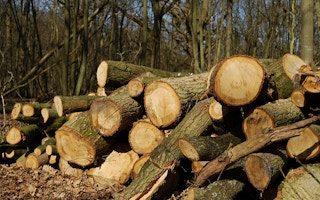A report released yesterday by the Forest Stewardship Council (FSC), the world’s most influential forest-products certification organisation, describes the findings of a nearly year-long investigation into allegations of illegality on the part of Austrian timber processing company Holzindustrie Schweighofer.
It reveals that the company “developed a culture” that prioritised cost over legality and routinely sourced wood that was illegally harvested in Romania and recommends Holzindustrie Schweighofer be disassociated from FSC – a recommendation that FSC’s Board of Directors has decided not to immediately follow.
The report states Holzindustrie Schweighofer has engaged in a number of activities that violates FSC policy, including sourcing illegal timber, possessing an inadequate due diligence system for assessing legality, associating with “individuals and companies with criminal and corrupt backgrounds,” and encouraging illegal logging through a bonus system.
Because of its conclusions, the report recommends booting the company from the FSC certification, stating “FSC shall disassociate from Holzindustrie Schweighofer and all companies controlled by Gerald Schweighofer.”
The report, produced by a panel of experts, describes its findings as “clear and convincing evidence,” and further urges the company to “make appropriate environmental and social compensation for the damages it has caused to the Romanian forest and its people as a whole.”
“
Extensive improvement is still needed in many areas in order for the company to maintain association with FSC after the probation period.
Kim Carstensen, director general, Forest Stewardship Council
Among the areas the report highlights is Retezat National Park, the entirety of which comprises what was once Europe’s last Intact Forest Landscape (IFL) – an area of primary forest large and undisturbed enough to harbor its original levels of biodiversity.
The FSC report states Holzindustrie Schweighofer was observed sourcing wood from a 794-hectare parcel of Retezat National Park on multiple occasions. The company bought the land in 2008 from private landowners to whom it was allegedly restituted, according to previous investigation, but government prosecutors have contested this, saying the restitution was illegal as the landowners were expropriated from the property in 1921.
In a previous statement provided to Mongabay in 2015, Holzindustrie Schweighofer asserted it no longer sourced wood from national parks.
“Schweighofer is the only company in the Romanian woodworking industry that does not accept any wood coming from national parks,” the statement reads. “We would like to clarify that harvesting in national parks is permitted by the law in certain areas (buffer zones) and under special guidelines.
However, as we share the opinion that these areas represent a key habitat for the preservation of thousands of species, Holzindustrie Schweighofer has voluntarily committed, at the beginning of 2015, to refuse any delivery of wood coming from national parks.”
Despite its panel’s recommendations, FSC’s Board of Directors decided against disassociation, instead placing Holzindustrie Schweighofer on a two-month probationary during which the company is still allowed to sell products under the FSC label.
In a statement, the FSC said the company must meet “a number of conditions” before the FSC International Board of Directors convenes in February. These include declaring responsibility for “certain irregularities” in its supply chain, demonstrating engagement in a “transparent and constructive dialogue” with stakeholders, and presenting an action plan of corrective measures.
“The FSC board has taken into account recent measures introduced by the Schweighofer Group to address the shortcomings found in its system, particularly related to its due diligence, but extensive improvement is still needed in many areas in order for the company to maintain association with FSC after the probation period,” says Kim Carstensen, FSC Director General.
This story was published with permission from Mongabay.com. Read the full story.










